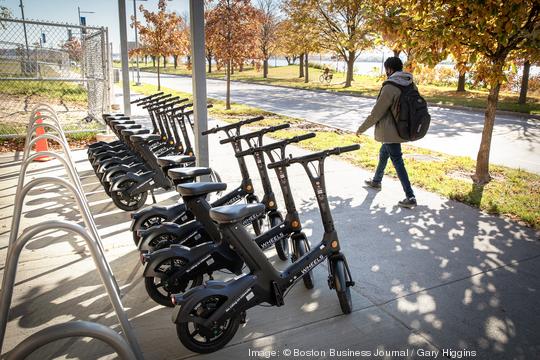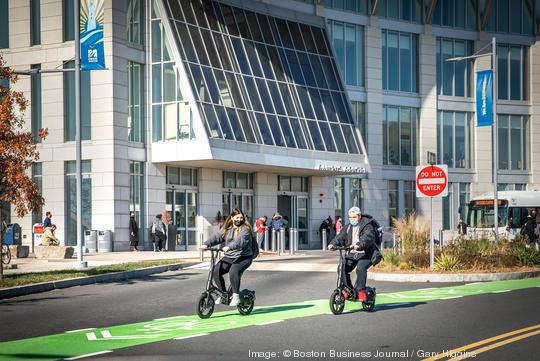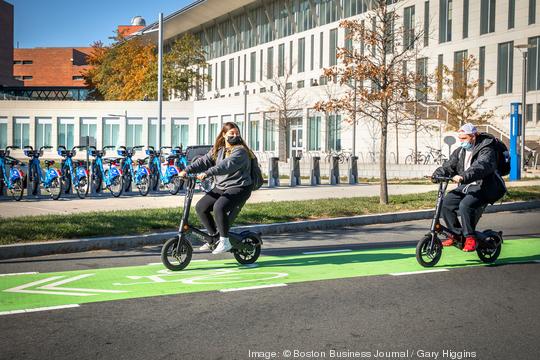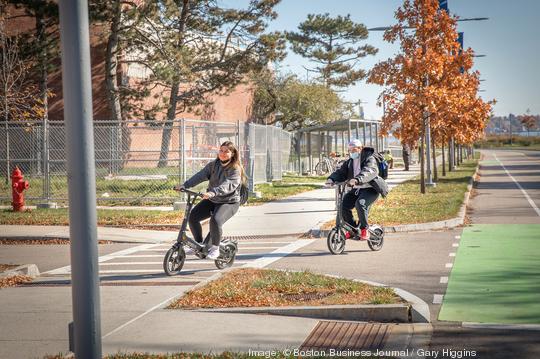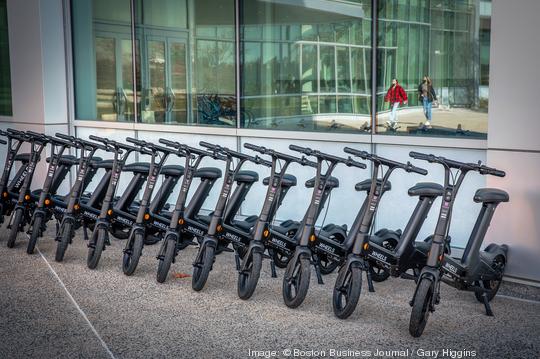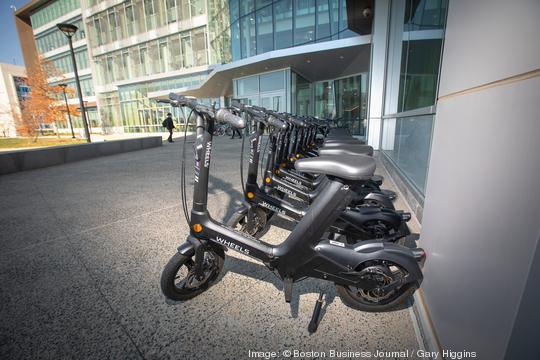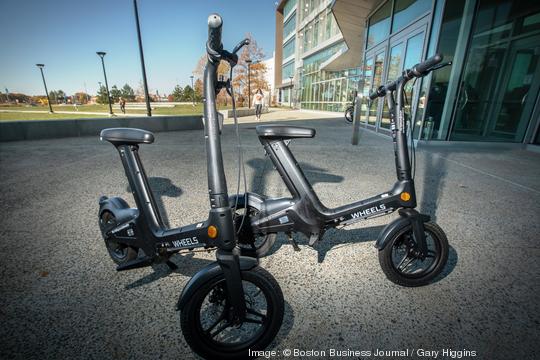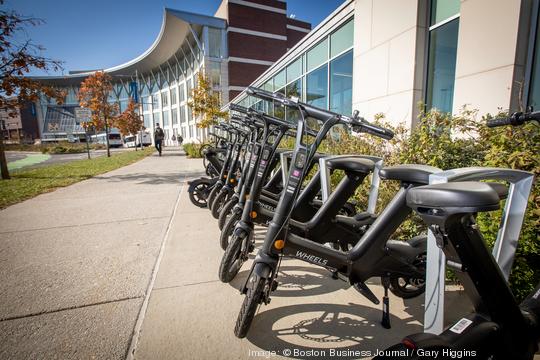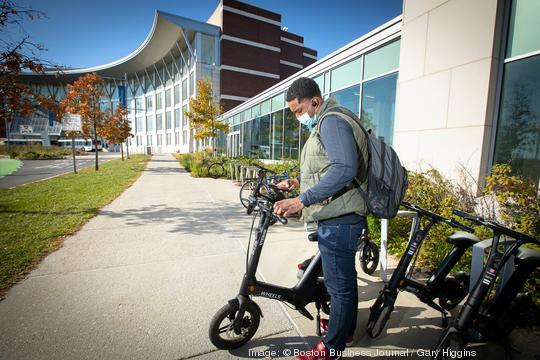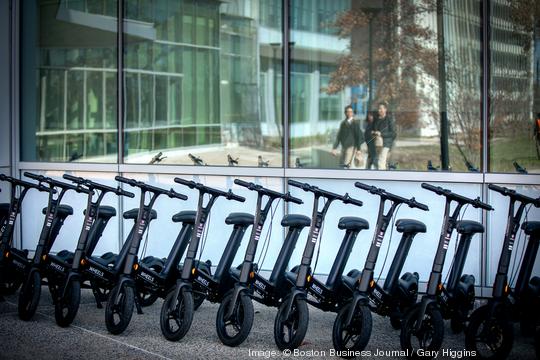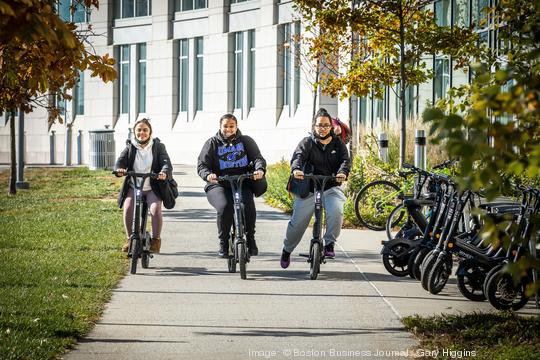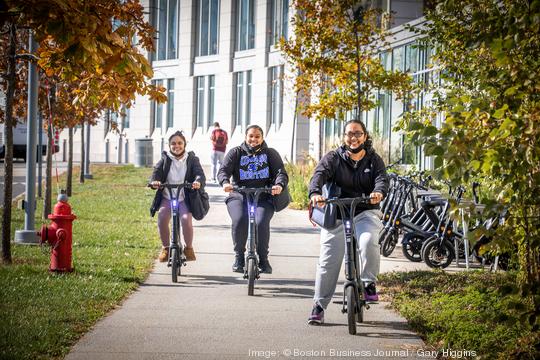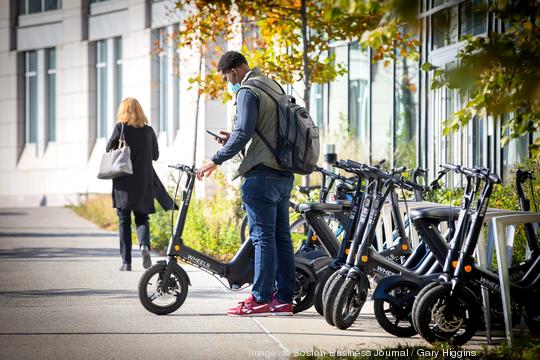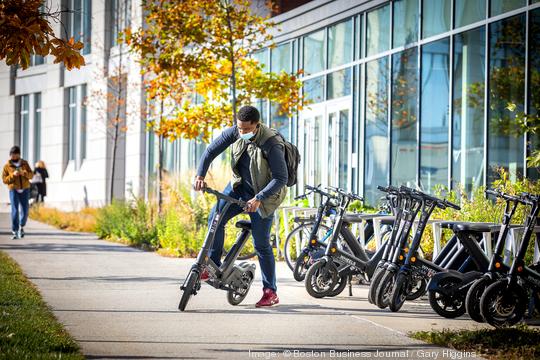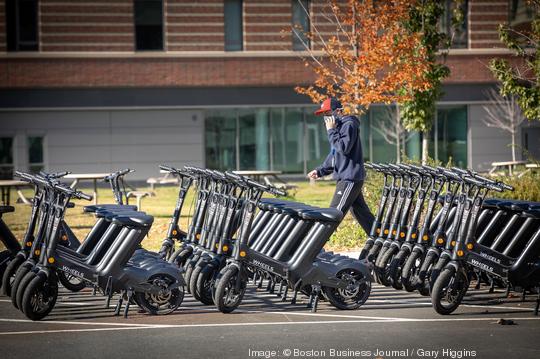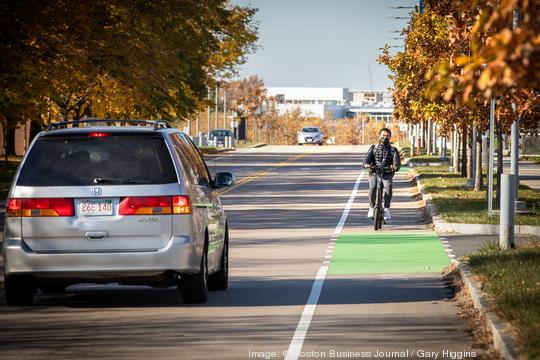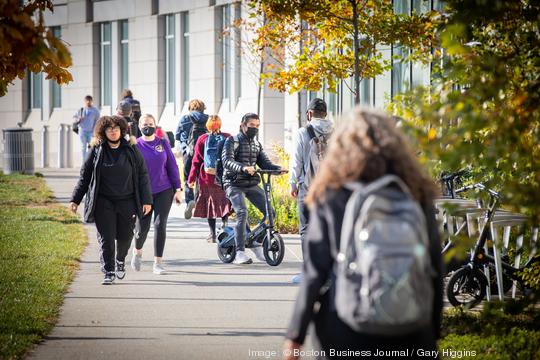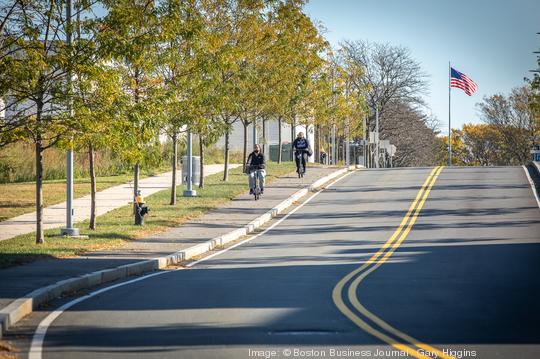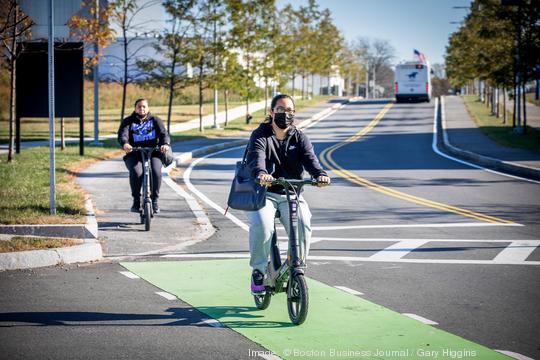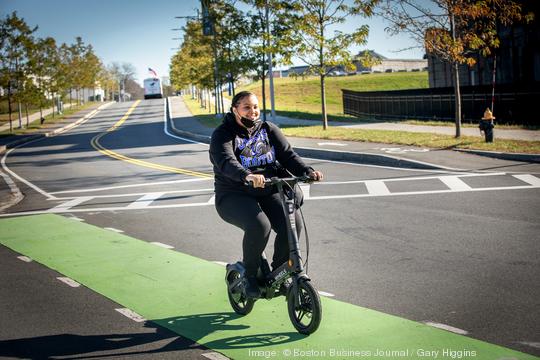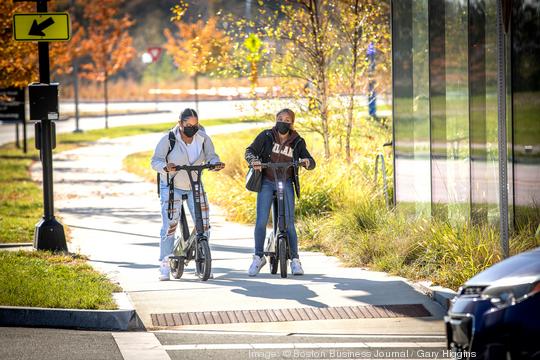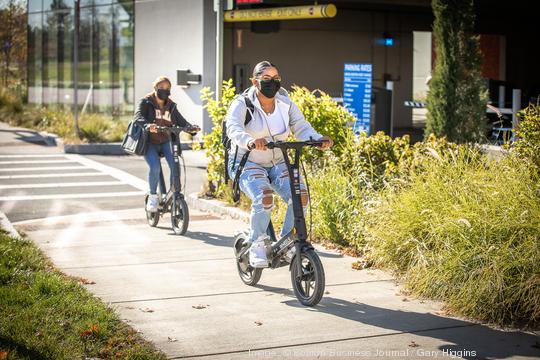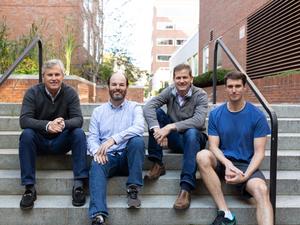Another dockless micromobility company is trying its hand at operating in Boston, braving tough winters and a history of unfriendly state and local policies.
The e-bike startup Wheels has a multi-year contract with the University of Massachusetts Boston to operate more than a hundred of its devices on the Dorchester campus, intended as a last-mile option for students, staff, faculty and visitors.
The vehicles, which blur the line between a bike and a scooter with a seat but no pedals, are already in place across the campus, and were in heavy use on a recent weekday. The company is also finalizing an agreement with the MBTA to set aside a spot for the devices at the JFK/UMass station.
“We’re going to be very closely watching the ridership between the MBTA station and campus and we're going to make sure that the hubs are appropriately stocked based on the hour of the day,” said Will Sowers, Wheels’ East Coast general manager, in an interview. “We’re going to see where the ridership takes us and how many devices the campus can conceivably support.”
Local officials in the Boston area have reacted poorly in the past to what they say are scooter operators bringing in their rentals without permission. Massachusetts laws have gray areas around both scooters and e-bikes, which have made cities and towns hesitant to chart their own courses. Sowers said he hopes Wheels can help change that mindset.
“I think starting on a smaller scale with the university will allow the city to see how something goes,” said Sowers. “We like to start small and build a really strong process through community engagement. Hopefully it's an opportunity for the city to see how a program can work successfully and to model it when they're ready to start with a larger scope program.”
Boston isn’t part of the partnership, but Wheels checked in with the city along the way and conducted a demonstration of the vehicles for city officials, Sowers said. The mayor’s office declined to comment for this story.
The pilot could be a useful test on some levels, but it has inherent limitations because of the university's "self-contained" nature, said Joseph Brennan, who founded the Boston micromobility automation startup Zoba.
“It will tell us something about whether people ride them at all, whether people ride them as it gets colder and other high-level questions like that,” Brennan said. “But it won’t tell us a ton about whether people are comfortable commuting in downtown Boston, how people feel about using them in different neighborhoods.”
Universities also often find it easier to make space for bikes or scooters than cities, Brennan said.
“When you introduce micromobility into a city, you’re going to all of a sudden contend with this friction right away,” with bikes or scooters taking up space normally reserved for parking or sidewalks, he said.
The Wheels devices, which cost 39 cents a minute to use, can be booked through the company’s app.

